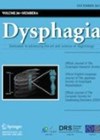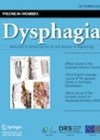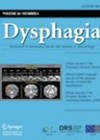Latest Contribution
Predicting the nature of swallowing deficits caused by surgical resection of the tongue?
Patients treated surgically for cancer of the tongue are expected to have difficulty in eating, drinking and swallowing. The authors of this paper report on a cohort of 106 patients in their practice who had surgical resection as primary treatment....
How common are swallowing problems in a general adult population?
This paper reports on the largest cross-continent study to date, looking at the prevalence of swallowing problems reported by adults in the community aged 18-65 years old. The authors used the Eating Assessment Tool (EAT-10) distributed via an online survey...
Oesophageal atresia and trachea-oesophageal fistula: a perspective on dysphagia management from Turkey
Children born with oesophageal atresia with or without trachea-oesophageal fistula usually receive early surgical repair to create tension-free anastomosis that facilitates oral feeding. However, many children are at risk of problems related to subsequent dysphagia. This includes respiratory, nutritional, motility...






